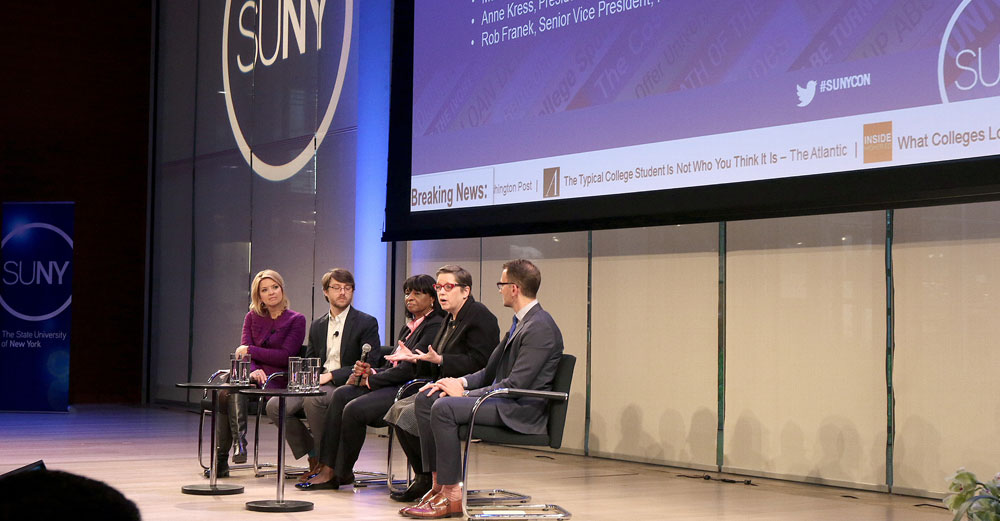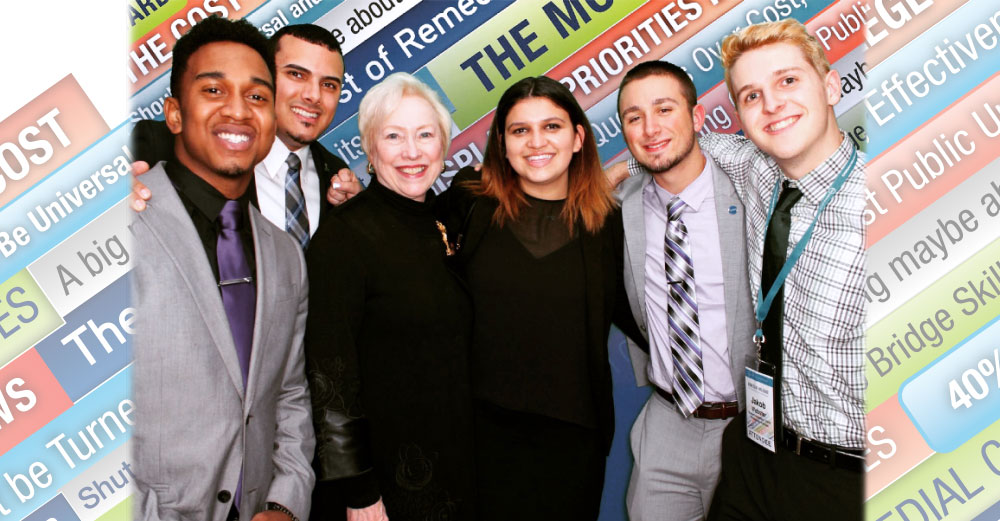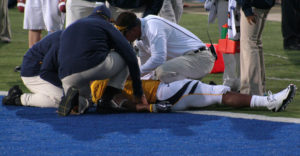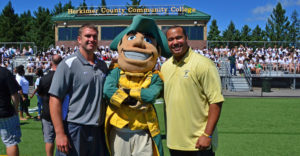
When it comes to success as a young adult, students hear similar bits of advice from everyone they know. Go to this college to get this type of good job. But when everyone brings you these specific bits of advice, what are they based on? What are the sources that grow these thoughts, and what kind of effects do they have on those that listen?
SUNYCON 2016 sought to find out, and a number of Student Fellows were lucky enough to be on hand to learn. They key topics at this year’s conference focused on the value of a college education as well as how media portrayals of higher education drive public opinion of the institutions themselves.
Hearing about SUNYCON from other people is one thing, but being there in person is a completely different experience. The Student Fellows were able to meet with Chancellor Zimpher, ask questions to some of the speakers during private roundtable sessions, as well as listen to plenaries on college affordability, crisis management, and the emphasis put on collegiate sports within an academic world. Through every session we were able to take away a lesson that applies to us as individuals at SUNY institutions.
Day one takeaway
Chancellor Zimpher opened SUNYCON 2016 with an opening keynote address to the entire audience which included SUNY campus presidents, members of the Board of Trustees, students and faculty, as well as professionals from a number of colleges and universities across the country. As she addressed the forces shaping the future of higher education, she made it known that those in attendance, and throughout the higher education industry, can indeed shape their own future.
Now, in 2016, the need for a college degree in order to advance one’s life is not a secret. Chancellor Zimpher quoted the statistic that “less than 50% of New Yorkers have a college degree but 70% of jobs will require one in the near future.” What I found astonishing about this statistic is how our media and society is so focused on the cost and name recognition of the school a student chooses, instead of the quality of life seven years down the road with the degree earned. And that quality of life is improved with the degree earned at a valuable public college or university.
All of the Student Fellows in attendance were able to participate in discussions that focused on the value of a college degree. One of the other Fellows in attendance, Hannah Vuozzo, a junior Interdisciplinary Studies major at Alfred State studying technical communications, design, and social sciences/humanities, so beautifully said, “I only hope that we, as a society, continue to invest in education. Public colleges and universities, in particular, cannot be under-appreciated. I am getting so much more than a piece of paper called a ‘degree’.”
Hannah was able to take away one of the most vital messages us Student Fellows received at SUNYCON, regarding media’s portrayal of higher education: College (at SUNY) is more than a piece of paper and classroom lectures. It is about perspective and self-improvement. College is the first time a lot of us have ever really seen what the world has to offer outside of our hometowns. It can be where you find your passion, if you embrace the new experiences.
More on day 2
On Day 2, the Welcome Back Keynote speaker Terry Gross, of NPR Fresh Air fame, addressed the attendees with an inside look at her career while adding to the idea that college is more than a piece of paper. For Terry, her interests in radio as well as social justice were ignited at the University at Buffalo. Looking at how she got started on her path to success, the spark wasn’t just from the formal classroom education. The self-discovery and awareness of a world other than the small town she grew up in was gained from her complete college experience.
My biggest takeaway from this experience is that even though we put a price tag on the formal side of higher education, there really is no price tag that can adequately measure how much a college degree changes your life. Through my own college experience, I have had the opportunity to interact with people through my role as a campus tour guide, learn to negotiate through my time in student government, try to understand New York State politics through my time as a NYS Assembly intern, gain insight into different backgrounds through living on campus, and explore the challenges of higher education through my position as a student assistant at SUNY System Administration. These are all opportunities I wouldn’t have had, had I gone into the workforce thinking higher education is useless and too expensive.
The saying holds true. Go to college to get a good job as proven by the statistic provided by Chancellor Zimpher. But more than that, as Hannah so beautifully put it, “I am earning so much more than a piece of paper called a ‘degree’.” My experience at SUNYCON proves that.




